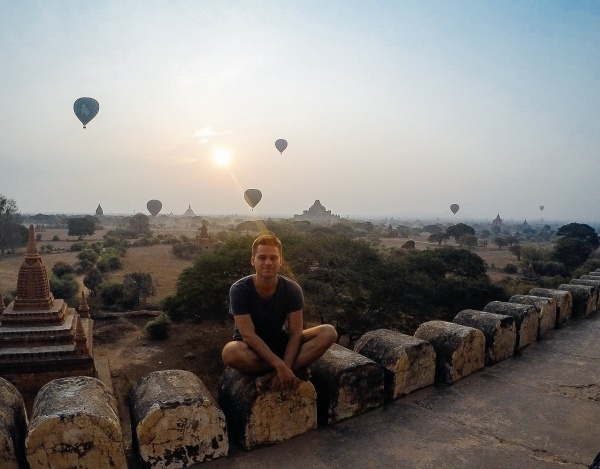What I learned by stopping work from nine to five
- Transfer

My grandfather and grandmother were born and raised in the USSR, and they had a very simple idea of success. They wanted to find a job and do it for the rest of their lives. For them, it was an ideal that allowed them to remain in their comfort zone.
They wanted a simple and predictable life: to come to the office by 9 in the morning, portray violent activities, not to hang out, and to go home at 5 in the evening.
After two generations and several decades, much has changed. I hate everything that is simple and predictable, I don’t like offices, I don’t want to “not lean out” and I love to go beyond the comfort zone.
50 years ago, companies needed to gather all workers under one roof in order to ensure industrial production. Today, more and more people understand that if an employee provides a result, his physical location and the number of working hours do not matter.
As a result, a new class of workers has appeared: those whose position and working time are independent of anything. Digital wanderers spend time traveling and working - freelance in Bali, run a business in Barcelona, or work for a San Francisco based company in Singapore. There are thousands of us all over the world, and I cannot imagine another life.
It is becoming clearer that the time spent in the office and productivity are not necessarily related to each other. What one worker can achieve in four hours, another can only in eight. Some work more efficiently in the morning, others in the evening. Some people like working in the office, while others don't.
At ChameleonJohn.com , where I am a co-founder, we encourage employees to spend time outside the office. We are surprised if someone asks if he can go to a party with his friend or mom for his birthday. If they produce results, they can do what they want.
It may seem to the inexperienced observer that digital wanderers are terrible workers. They fly all the time, and you can’t reach them at the right time (you won’t answer your phone while diving or surfing). But I believe that just the opposite is true.

People become happier when they live where they want, and spend time behind what they like. As a digital traveler, you can create the life that suits you. Love surfing - move to the desired city. If you want to travel on a motorcycle, you can go on a six-week trip to Vietnam.
A great example of a company working with hundreds of remote workers is MySQL. I talked a lot with their CEO Martin Mikos, who sold the company in 2008 for $ 1 billion. At the peak, they had 500 full-time employees from 36 countries, and not a single office. His words:
“It's very easy to look busy in the office, attending meetings, answering emails and consuming coffee. But working remotely, you will answer only one question: “Where are the results?”. In addition, hiring people only from the San Francisco Bay Area, we would not be able to reach all the most talented developers. And so we can hire a person from anywhere, and save a lot of money on renting an office. ”
The happier your employees, the more they like the job, the more they bring in innovation and are better with customers. This indisputable connection of cause and effect leads to increased sales and profits.
My address is not a house, and not a street
I have been traveling for almost two years. During this time I traveled to 25 countries. He rode a motorcycle in the islands of Thailand and the Philippines, walked on an active volcano in Indonesia, studied surfing, received a license for a deep-sea diver in the Gili Islands, learned new cultures and met dozens of wonderful people. And all my things fit in a small backpack (the same one with which I once went to school).

Our society is obsessed with the idea of ownership. As Dave Ramsey says:
People buy things that they don’t need with money that they don’t have in order to impress people they don’t like.
But I found that owning things is impractical. They need to be monitored, they tie you to one place, and usually it comes out more expensive than renting them.
And for the past two years I have not had a permanent address, since I rarely spend more than a month in one country. I am free to move where I want and when I want. I can get from Thailand to Japan, and then to Indonesia, without stopping for months to sell all things and rent out an apartment. I just buy a ticket and fly away.
With the spread of the idea of wandering workers, the attitude to things is changing. Companies like AirBnb (rental of houses and rooms), Vinted (sale and exchange of used clothes), RelayRides (car rental) are gaining popularity. They have many advantages - from user convenience to ridding the planet of harmful emissions.
Thousand perspectives
After each adventure, I think about what I saw, what I learned and what I learned from it. In Japan, I learned the price of selflessness and caring for others. In Myanmar, I realized that happiness is not determined by money. In Vietnam, learned about the importance of the family.
This experience has a strong influence on my approach to both life and business. It helps me to see opportunities for doing business outside the western world, and to create products for not very rich countries.

For example, Indonesia is the fourth country in the world in terms of the number of people - 250 million people. But they are scattered across 17,000 islands, which is a logistical problem for products coming to this market. In Myanmar, I saw a large market for 65 million people with huge potential. The Internet there is very slow, and there is practically no public transport. The country is ready for great innovation, after it suffered for a long time under the yoke of a military junta.
Digital travel can make the world smaller, and digital innovation can bring people together.
There will be no better time
Steve Jobs once said:
“The realization that you are mortal is the best way I know to avoid the delusion that you have something to lose. There is no reason not to follow the call of your heart. ”
I use this principle when making important decisions in my life, and that is why I became a wanderer.
If you ever dreamed of exploring the world, it is time to do it. You do not have to sacrifice your career. Thousands of people are ready to help you, there are many ways to earn a living, many things that you can experience, and many places that you can see.
